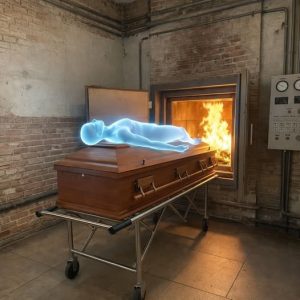My mother left me one thing that felt like a heartbeat: the little lake house she bought before meeting my dad. It was her refuge—the place we drove to with peanut-butter sandwiches and a tin of watercolors. She’d paint the shoreline in soft blues while I skipped stones and made lopsided sandcastles. On rainy afternoons, we’d curl up in the big window seat with cocoa, her voice reading stories into the quiet. The pillow she stitched for that bench said, “Still waters, strong heart.” It fit her like a signature.
When I was fifteen, we lived there for a week. She taught me to make blueberry pancakes on the old stove and told me, “This house saved me. When life got loud, I came here and remembered who I am.” After she died the next year, I kept it exactly as she left it—no renting, no loans. I dusted the sills, changed the sheets, and visited a few times a year to breathe where she’d breathed.
Dad remarried quickly. Carla arrived with a smile like plastic and a “sweetie” that felt like a slap. She tossed my mother’s quilts and canvases for clashing with the “aesthetic.” Her friends mocked Mom’s style, calling it “hippie Earth-mom charging crystals under the moon.” I learned to leave the room.
When I turned twenty-one, the deed was mine. I told Dad, “The lake house is sacred. No one goes unless I say.” He agreed. Carla called it the “fairy cottage.”
Every June, I spend Mom’s death anniversary there alone. This year, I pulled up and found four cars, music thumping, laughter spilling. Carla poured drinks while her friends sprawled on the porch—one resting her feet on the “Still waters, strong heart” pillow.





